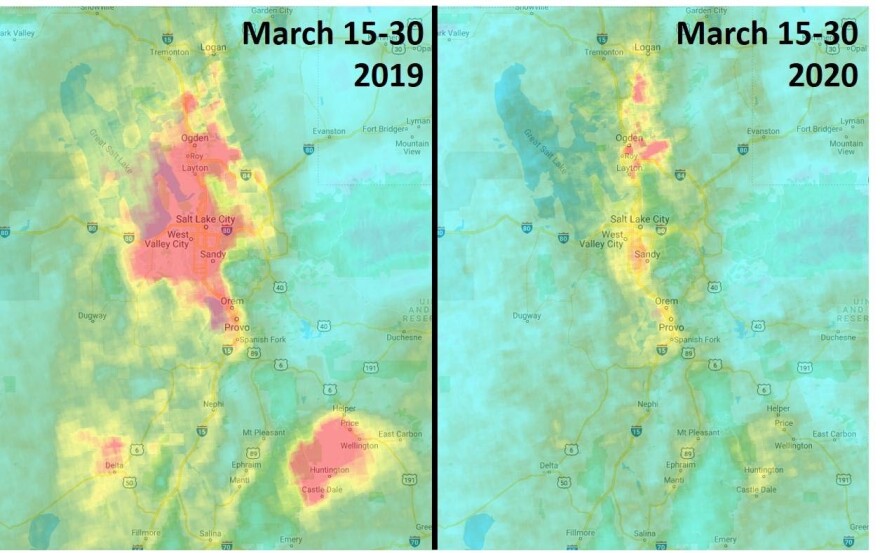Utah’s Economic Development and Workforce Services Interim Committee met Monday to discuss improvements to the Wasatch Front’s air quality during the coronavirus pandemic.
In March, levels of nitrogen oxides — pollutants that help create smog — were nearly 60% lower along the Wasatch Front compared to the same period in past years.
That’s according to an analysis by Logan Mitchell, an atmospheric sciences professor at the University of Utah. In a presentation to the legislative committee, Mitchell tied the cleaner air along the Wasatch Front to less traffic.
“Our local air quality improved immediately after emissions were reduced,” Mitchell said. “It really illustrates how tightly connected our local emissions are to our local air quality.”
Last month, Sen. Dan McCay, R-Riverton, announced on social media he would sponsor legislation to get more state employees working from home.
Utah has already introduced a program to expand teleworking opportunities for some of its employees.
Jean Mills-Barber, director of field operations with the state Department of Human Resources Management, said some agencies were starting to implement teleworking programs before the pandemic. When it ends, she expects to see even more.
“[Agencies] intend to increase telework activity where they possibly can and where it makes good business sense to do so,” Mills-Barber said.
But McCay said it’s time for the government to be more aggressive and set an example.
“It is our job to disrupt the marketplace in this situation for public health,” McCay said.
The committee voted to support a bill that would classify every state employee position by whether they can work from home, especially on bad air days.
Emily Means covers politics for KUER. Follow her on Twitter @Em_Means13


